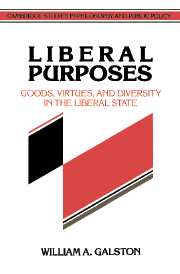Summary
Every society embodies a conception of justice. As I suggested in Chapter 8, the modern liberal society is no exception. In addition to individual choice, which enjoys a special status within liberal communities, two principles are of particular importance. First, goods and services that serve human interests defined as essential are to be distributed on the basis of need, and the needs of all individuals are to be regarded as equally important. Second, many opportunities outside the sphere of need are to be allocated to individuals through a desert-based competition in which all have a fair chance to participate.
The latter principle entered American political thought under the rubric “equality of opportunity.” Much of American social history can be interpreted as a struggle between those who wished to widen the scope of its application and those who sought to restrict it. Typically, its proponents have promoted formal equality of opportunity by attacking religious, racial, sexual, and other barriers to open competition among individuals. And they have promoted substantive equality of opportunity by broadening access to the institutions that develop socially valued talents.
In this chapter, I sketch the grounds on which I believe equality of opportunity can be defended. In the course of doing so, I revise the generally accepted understanding of this principle in several respects. As I interpret it, equality of opportunity is less juridical and more teleological than is commonly supposed.
- Type
- Chapter
- Information
- Liberal PurposesGoods, Virtues, and Diversity in the Liberal State, pp. 191 - 212Publisher: Cambridge University PressPrint publication year: 1991

